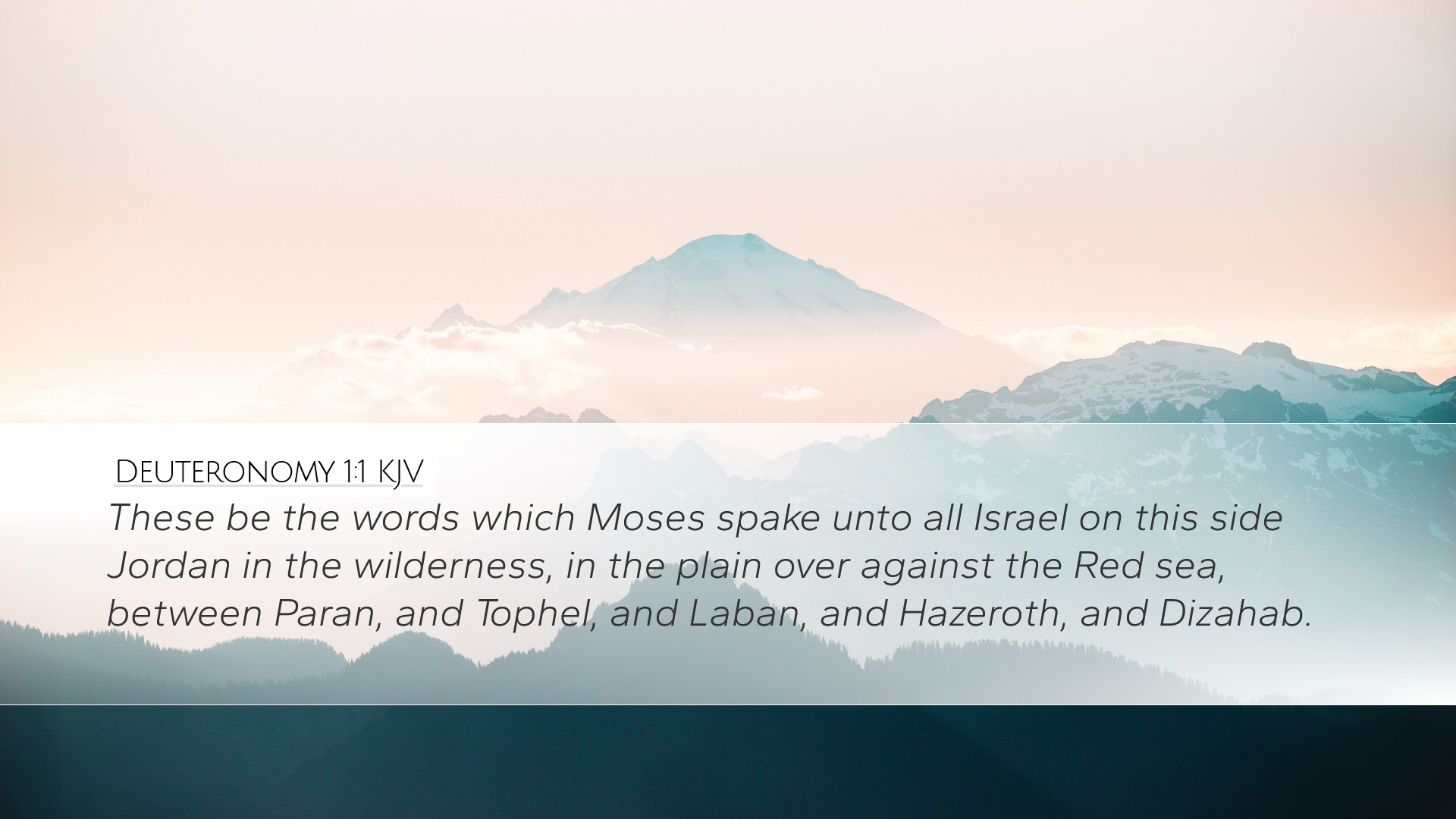Commentary on Deuteronomy 1:1
"These be the words which Moses spake unto all Israel..."
This opening verse of Deuteronomy sets the stage for the entire book, indicating that the contents are direct communications from Moses to the Israelites. It is critical to recognize the context and significance of these words as they prepare the people for their entrance into the Promised Land.
In this verse, we find the culmination of the journey undertaken by the Israelites over the previous 40 years. It serves as an introduction to the laws, warnings, and exhortations Moses imparts as he addresses a new generation that will now experience what their forefathers had only hoped for.
Historical Context and Significance
1. The Setting:
Moses' address occurs in the Wilderness of Moab, just before the Israelites cross the Jordan River into Canaan. This geographical and spiritual transition marks the end of an era for Israel.
2. A New Generation:
The audience of these words consists of those who were either born during the wilderness wandering or were too young to have participated in the events at Mount Sinai. Hence, it is imperative for Moses to reiterate and reflect on the commandments and covenantal obligations of their ancestors.
Theological Insights
1. Divine Covenant:
The significance of this speech lies in the covenant between God and Israel, which requires remembrance and adherence. Moses emphasizes the continuity of this covenant across generations, stressing that the promises of God remain valid and active.
2. Prophetic Voice:
Moses acts as a mediator, portraying the role of a prophet who faithfully conveys God's words to His people. This methodological approach helps establish not only Moses' authority but also the seriousness with which the Israelites should approach the boons and burdens of the Law and their responsibilities therein.
Commentary Insights
-
Matthew Henry: Henry suggests that Moses' address is a critical reminder of God's faithfulness and the importance of steadfastness in the covenant. He posits that, through the recounting of historical events, Moses aims to reinforce the lessons learned from failures and divine mercies.
-
Albert Barnes: Barnes notes that Moses' words are carefully crafted not only to reflect on the past but also to forewarn the people about potential pitfalls as they move forward. Barnes remarks on the necessity of humility in remembering their history and being cautious of pride as they enter the land of abundance.
-
Adam Clarke: Clarke adds that the phrase “these be the words” implies a formal declaration of legal and historical significance. He draws parallels between Moses’ address and other legislative speeches throughout the Bible, underscoring the importance of divine authority in national matters.
Practical Applications
For contemporary readers, and particularly for pastors and theologians, this verse serves as a poignant reminder of the importance of teaching and recounting God's faithfulness across generations. In every ministry, the transmission of biblical history and doctrine remains essential in cultivating a faithful community aware of its roots.
Encouragement to Leaders: Like Moses, spiritual leaders are called to communicate the importance of faith, obedience, and the history of God’s people. The legacy of prior generations can guide current practices and attitudes toward the fulfillment of God's promises.
Conclusion
In summary, Deuteronomy 1:1 acts as a profound introduction to the teachings found within the book of Deuteronomy and sets a foundational understanding that is vital for both current believers and future generations. The remembrance of God’s words, covenant, and providence embodies the essence of communal faith, urging ongoing reflection and commitment to divine principles. As we engage with these teachings, we are encouraged to consider our responses to God's faithfulness and our role in passing down His truths.


